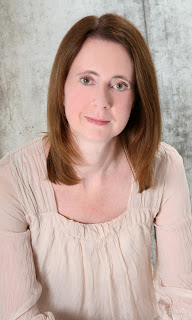I am delighted to have author
Helena Fairfax on the blog today. I always love Helena's romantic stories, and
I am very much enjoying reading her latest novel, FELICITY AT THE CROSS HOTEL,
a wonderful romance set in the spectacular Lake District, which was released last Friday.
Hello Helena and congratulations on the release of your novel. I have to say that I absolutely love your cover! The Lake District has just been designated a World Heritage Site by Unesco, and deservedly so. I am lucky to live not too far away and try to visit at least once a year. We went to Coniston last August and
absolutely loved it, even if we had a bit of a misadventure when walking up The
Old Man, but that's another story...
Tell me, why did you choose to
set your romantic novel in the Lakes?
Is there a better setting for a
romance novel than the Lake District? With its
spectacular landscape, its green mountains and the shining lakes, Cumbria has
been inspiring writers for centuries. In the nineteenth century Cumbria inspired a whole school of poets – the
"Lake Poets" of the Romantic Movement.
The most famous of these poets is Wordsworth. Nearly every school child has
heard of Wordsworth's host of golden daffodils, and in some ways his poetry has
become devalued because it's now so often quoted. But actually, even in his day
Wordsworth had his critics. Byron once said of him, "What will any reader
out of the nursery say to such namby-pamby?"
To be honest, I have to agree with
Byron about the "namby-pamby". I find Wordsworth's poetry a bit too
simplistic and a little childish in its optimism. Here is the last verse of
"I Wandered Lonely as a Cloud":
For
oft, when on my couch I lie
In
vacant or in pensive mood,
They
flash upon that inward eye
Which
is the bliss of solitude;
And
then my heart with pleasure fills,
And
dances with the daffodils.
It's strange that Wordsworth wrote
mainly about the gentle beauty of the Lake District
– the dancing daffodils - when there is also so much that's dark and dramatic.
Besides the romance of the landscape, the setting of the Lake
District is also perfect for a novelist because a soft, sunny day can
swiftly turn threatening. Patrick Cross, the hero of my novel, is grieving the
death of his friend, who died because of an act of recklessness while diving in
the still, green waters of the lake. There have been many deaths in the
mountains and lakes of Cumbria,
and in my book I've dwelt on the contrast between the beauty and the danger of
the landscape.
 |
| Derwent Water |
It's a shame that nowadays some parts
of the Lake District are inundated with
tourists, and the roads in summer are very often clogged. But it's only in
recent times that the Lakes have become a tourist destination, and there are
many quieter areas that have remained unchanged for centuries. Alone in this
magnificent landscape, away from the traffic, you can't help but feel a part of
a long, long history of the soil that stretches back thousands of years.
Lots of people have fallen in love in this wonderful setting, but there
are some exceptions. Bill Clinton was famously moved to propose to Hillary for
the first time by the shores of Ennerdale Water, but she turned him down.
Obviously there are some people who remain unmoved by the romance of the Lakes!
 |
| Ennerdale Water, scene of Bill Clinton's proposal, Trevor Harris via Wikimedia Commons |
Will love blossom for Patrick Cross and Felicity Everdene, the hero and
heroine of my novel? Here is the blurb to Felicity
at the Cross Hotel:
A quaint hotel in the Lake District. The Cross Hotel is the perfect getaway. Or
is it?
Felicity Everdene needs a break from the family business. Driving through the Lake District to the Cross Hotel, past the shining lake
and the mountains, everything seems perfect. But Felicity soon discovers all is
not well at the Cross Hotel …
Patrick Cross left the village of Emmside years ago never intending to return,
but his father has left him the family’s hotel in his will, and now he's forced
to come back. With a missing barmaid, a grumpy chef, and the hotel losing
money, the arrival of Felicity Everdene from the notorious Everdene family only
adds to Patrick’s troubles.
With so much to overcome, can Felicity and Patrick bring happiness to the Cross
Hotel … and find happiness for themselves?
Author
Biography:
Helena Fairfax is a British author
who was born in Uganda and
came to England
as a child. She's grown used to the cold now which is just as well, since these
days she lives in an old Victorian mill town in the north of England, right next door to the windswept Yorkshire moors. Helena
walks this romantic landscape every day with her rescue dog, finding it the
perfect place to dream up her heroes and her happy endings. Subscribers to Helena's newsletter
receive news of free stuff, competitions with prizes, gossip, and links to cool
websites she's been looking at when she should have been writing.
Thank you very much for being
my guest today, Helena. I had no idea Bill Clinton has proposed to his Hillary in the Lake District! Congratulations once again on your release. Felicity at the Cross Hotel is a wonderful
read.
Social Media Links




































